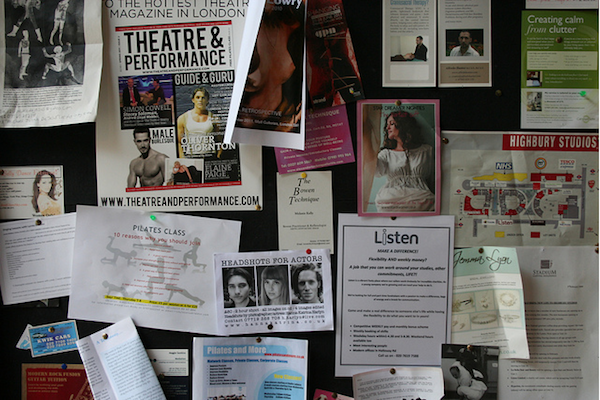
One of the most common complaints about newspapers’ adaptation to the digital world — or, depending on your perspective, their lack thereof — is their failure to create their own versions of Craigslist. Papers ceded the market of micro-marketing, the complaint goes…when, with a bit of foresight, they might have built platforms that might have preserved, at least to an extent, their all-important classified revenue streams.
So goes the argument. But it doesn’t follow that, in 2011, Craigslist has completely cornered the market on classified advertising — or, for that matter, on community messaging overall. Today, a major paper is getting into the community messaging game: The Guardian is launching n0tice, a social news platform that draws a little from Craigslist, a little from Foursquare, a little from Ning.
 “It’s a place where you can share news, post details about forthcoming events or let people know you have something to sell or share,” the project’s FAQ puts it. Just like IRL message boards, “everyone else in your locality will be able to see what you’ve posted and also take part.”
“It’s a place where you can share news, post details about forthcoming events or let people know you have something to sell or share,” the project’s FAQ puts it. Just like IRL message boards, “everyone else in your locality will be able to see what you’ve posted and also take part.”
n0tice — which is, for the moment, still in private beta — is citizen-driven: It allows people the ability to create their own noticeboards (er, n0ticeboards) about whatever topics and events they want. As Matt McAlister, the Guardian’s director of digital strategy, notes in a blog post announcing n0tice’s live beta, users can customize the branding, the overall aesthetic, and even the subdomain of their particular noticeboards. And “we’ll also give you options to customize the content using some filters like following people, tags and locations, though that feature is still being developed.”
The team will soon expose n0tice’s read API, as well. Mutualization!
n0tice is Craiglistfully easy to use: When you go to the site, it will first detect whether you’re coming from a mobile device. (It was designed for the iPhone first, McAlister notes, but has a desktop version, as well.) Once you agree to location-reading permissions, the site will grab your latitude and longitude — using the Google Maps geocoder and Yahoo’s geo services — and then show you what’s recently been published to n0tice near your location.
As McAlister sees it, he told me in a phone call this afternoon, n0tice is simply the next step in the long evolution of community news — a step that makes particular sense for an increasingly mobile world. As he explained in his post:
In the 1980’s and 90’s the dial-up online bulletin board systems or BBS’s made the noticeboard concept come alive in the digital space based on what technology was available at the time. Email enabled mailing lists that acted like noticeboards. And, of course, the web and Netscape made browsable noticeboards possible in digital space, such as Craigslist.
But few models for community noticeboards have taken off in a social-local-mobile world, so far.
So n0tice is news for the SoLoMo space. It was born, appropriately enough, at a 2009 hack day, and inspired in its development by, among other projects, Ushahidi and Google’s News Near You. The n0tice team — including Daniel Levitt, of the Guardian’s Open Platform, and Sarah Hartley — is, overall, thinking about the what’s next in civic information. Blending technologies, from social to mobile, is a big part of that. “In many ways,” McAlister notes, “they’ve created a new kind of social platform, or a really really old one reinvented for the new world.”
Another intriguing element: n0tice’s business model. The platform is free for users (“there’s no cost to browse around, post news or events or even place a small ad. nothing, zero, zilch”) and ad-supported. Standard stuff. Where it gets interesting, though: “Featured positions are sold based on region size and duration so, as an example, if you want to be certain of premium position on all pages displayed within a one mile radius the cost is £1 per day.”
In other words, as McAlister puts it, n0tice is taking “a space and time” approach to advertising. Which is one that makes, on a location-based platform, a world of sense.
Image by n0tice used under a Creative Commons license.